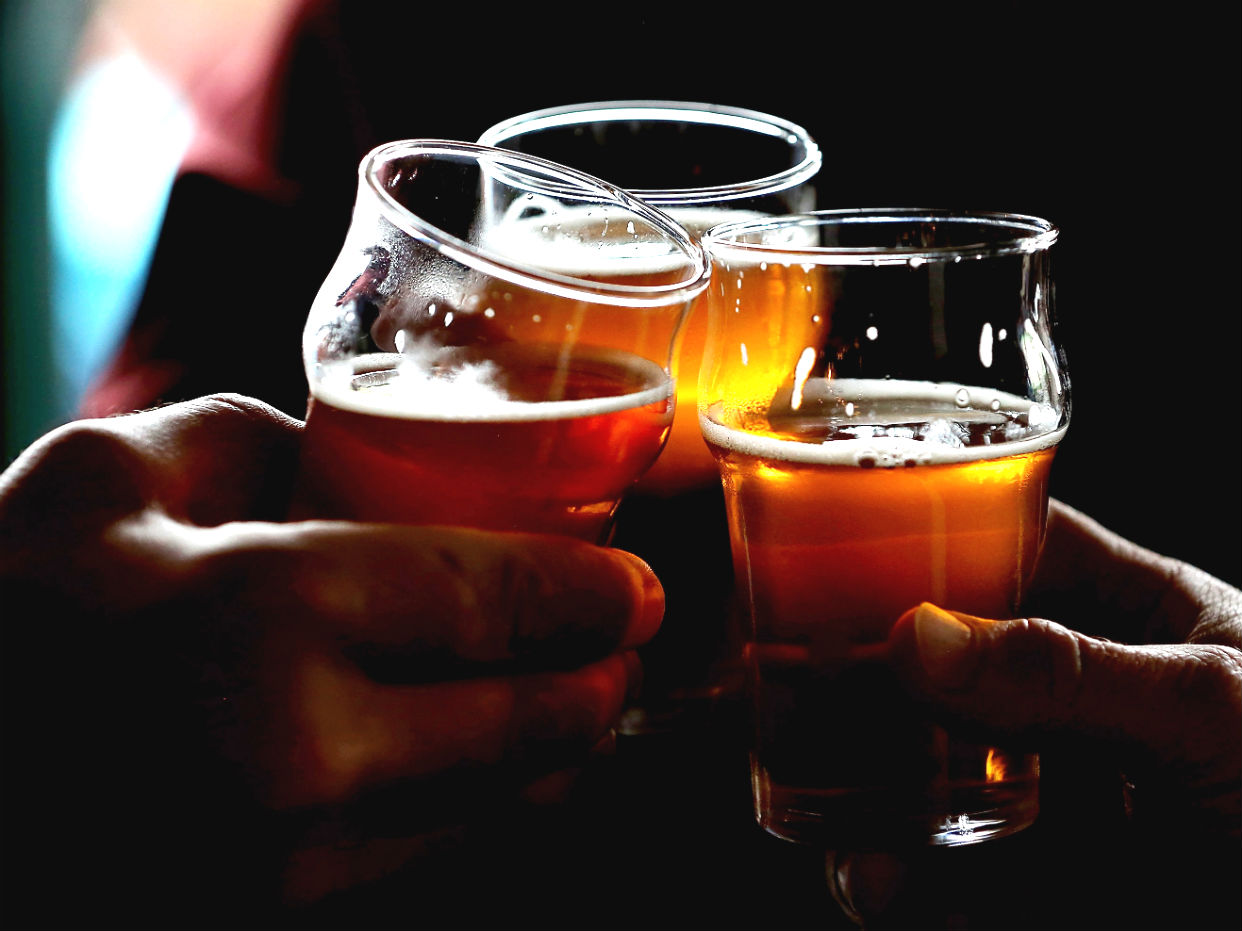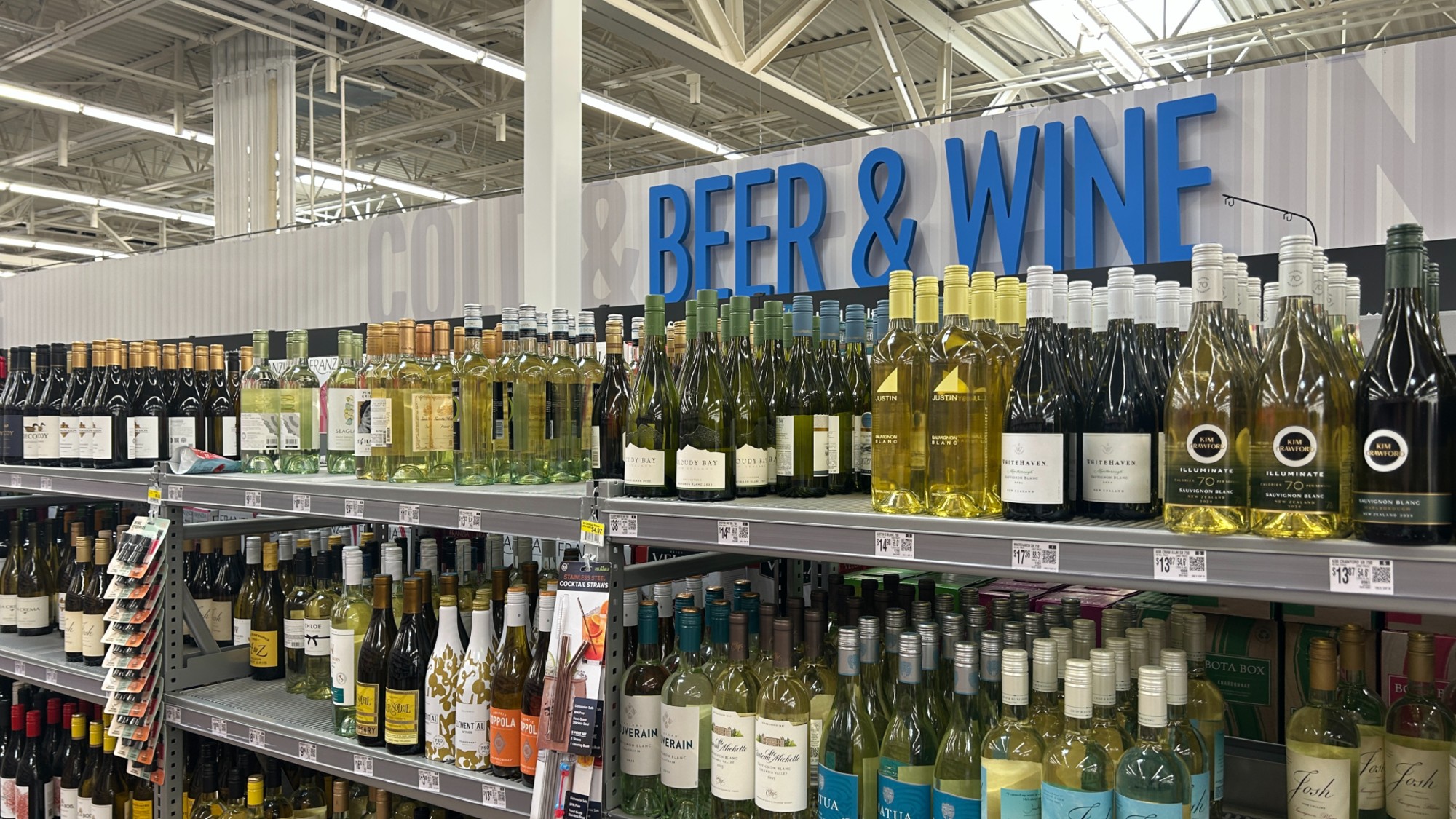Does Westminster have an alcohol problem?
Research showing MPs more likely to drink excessively has fuelled concern about Parliament’s ‘poisonous’ drinking dens

A free daily email with the biggest news stories of the day – and the best features from TheWeek.com
You are now subscribed
Your newsletter sign-up was successful
The drinking culture in Westminster is back in the spotlight after nine alcohol-fuelled security incidents were reported in a single month.
A freedom of information request by Times Radio revealed that five of the nine breaches involving “intoxicated persons”in March resulted in formal reprimands and Commons passes being suspended.
Critics have pointed to “a ‘freshers’ week’ ethos taking root among younger staff”, said The Times, but questions have also been raised about boozing habits throughout Parliament.
The Week
Escape your echo chamber. Get the facts behind the news, plus analysis from multiple perspectives.

Sign up for The Week's Free Newsletters
From our morning news briefing to a weekly Good News Newsletter, get the best of The Week delivered directly to your inbox.
From our morning news briefing to a weekly Good News Newsletter, get the best of The Week delivered directly to your inbox.
‘Poisonous’ dens
Amid growing uproar over reports of sexism and sleaze at Westminster, Defence Secretary Ben Wallace last month urged MPs to stay out of Parliament’s “poisonous” drinking dens.
But according to The Times, parliamentary passholders who go out drinking in London and then return “either to sleep or to host afterparties in offices” are believed to be “a bigger factor in driving these serious incidents than people in bars on the estate”.
Either way, Wallace said that the long hours and access to alcohol had been causing problems for many years. His advice to colleagues was “finish your day’s work and go home”.
A free daily email with the biggest news stories of the day – and the best features from TheWeek.com
A 2020 survey of the drinking patterns of 146 MPs found that “risky drinking” was “more likely” among the politicians compared with the general English population.
The research, outlined in a study in the British Medical Journal, also found that the MPs were more likely than those from comparable socio-economic groups to have a drink four or more times a week; to drink ten or more units of alcohol on a typical drinking day; and to drink six or more units on one occasion. And they were more likely to feel guilty because of their drinking.
In an article for The Independent last year, one of the researchers said that the findings may have been “an underestimate of the true extent of the problem”. Although the survey was anonymous, “there is always a strong chance of playing down alcohol intake due to the stigma of being seen as an ‘alcoholic’”, wrote psychiatrist Tony Rao.
MPs often experience aggression, harassment and even stalking by members of the public, he said, and “the impact on their mental health can be devastating”. Alcohol “can sometimes be a way to drown out the background noise of this and other potentially traumatic events”.
‘Functioning alcoholics’
A source told Business Insider earlier this year that Parliament was home to “lots of functioning alcoholics”. An unnamed whip reportedly claimed that excess drinking was one of the “top problems” dealt with by his team.
Drinking sessions in Parliament had “ended in fights and arguments and other embarrassing situations... MPs have gone up to other members in the lobby and started slurring, or you get men harassing women”, the whip added.
A former staff said that MPs were reluctant to seek counselling to tackle alcohol addictions, because “it would be leaked and briefed out”, adding: “Parliament isn’t a safe space for anyone to seek help.”
Dr Richard Piper, chief executive of Alcohol Change UK, warned that “Westminster is in a right state”. The “combination of long working hours, plus high accessibility, plus an old boys drinking culture” is “a really toxic mix”, he told the news site.
Researcher Rao noted that “other professions with equally high levels of stress and unsociable working hours, such as medicine, do not permit drinking during working hours”.
In a recent article on The Conversation, Rao concluded that “alcohol is not a feature of the modern workplace – and this should include the House of Commons”.
Chas Newkey-Burden has been part of The Week Digital team for more than a decade and a journalist for 25 years, starting out on the irreverent football weekly 90 Minutes, before moving to lifestyle magazines Loaded and Attitude. He was a columnist for The Big Issue and landed a world exclusive with David Beckham that became the weekly magazine’s bestselling issue. He now writes regularly for The Guardian, The Telegraph, The Independent, Metro, FourFourTwo and the i new site. He is also the author of a number of non-fiction books.
-
 How the FCC’s ‘equal time’ rule works
How the FCC’s ‘equal time’ rule worksIn the Spotlight The law is at the heart of the Colbert-CBS conflict
-
 What is the endgame in the DHS shutdown?
What is the endgame in the DHS shutdown?Today’s Big Question Democrats want to rein in ICE’s immigration crackdown
-
 ‘Poor time management isn’t just an inconvenience’
‘Poor time management isn’t just an inconvenience’Instant Opinion Opinion, comment and editorials of the day
-
 How are Democrats turning DOJ lemons into partisan lemonade?
How are Democrats turning DOJ lemons into partisan lemonade?TODAY’S BIG QUESTION As the Trump administration continues to try — and fail — at indicting its political enemies, Democratic lawmakers have begun seizing the moment for themselves
-
 How corrupt is the UK?
How corrupt is the UK?The Explainer Decline in standards ‘risks becoming a defining feature of our political culture’ as Britain falls to lowest ever score on global index
-
 How did ‘wine moms’ become the face of anti-ICE protests?
How did ‘wine moms’ become the face of anti-ICE protests?Today’s Big Question Women lead the resistance to Trump’s deportations
-
 How are Democrats trying to reform ICE?
How are Democrats trying to reform ICE?Today’s Big Question Democratic leadership has put forth several demands for the agency
-
 ‘Bad Bunny’s music feels inclusive and exclusive at the same time’
‘Bad Bunny’s music feels inclusive and exclusive at the same time’Instant Opinion Opinion, comment and editorials of the day
-
 The Mandelson files: Labour Svengali’s parting gift to Starmer
The Mandelson files: Labour Svengali’s parting gift to StarmerThe Explainer Texts and emails about Mandelson’s appointment as US ambassador could fuel biggest political scandal ‘for a generation’
-
 Why is Tulsi Gabbard trying to relitigate the 2020 election now?
Why is Tulsi Gabbard trying to relitigate the 2020 election now?Today's Big Question Trump has never conceded his loss that year
-
 ‘The science is clear’
‘The science is clear’Instant Opinion Opinion, comment and editorials of the day